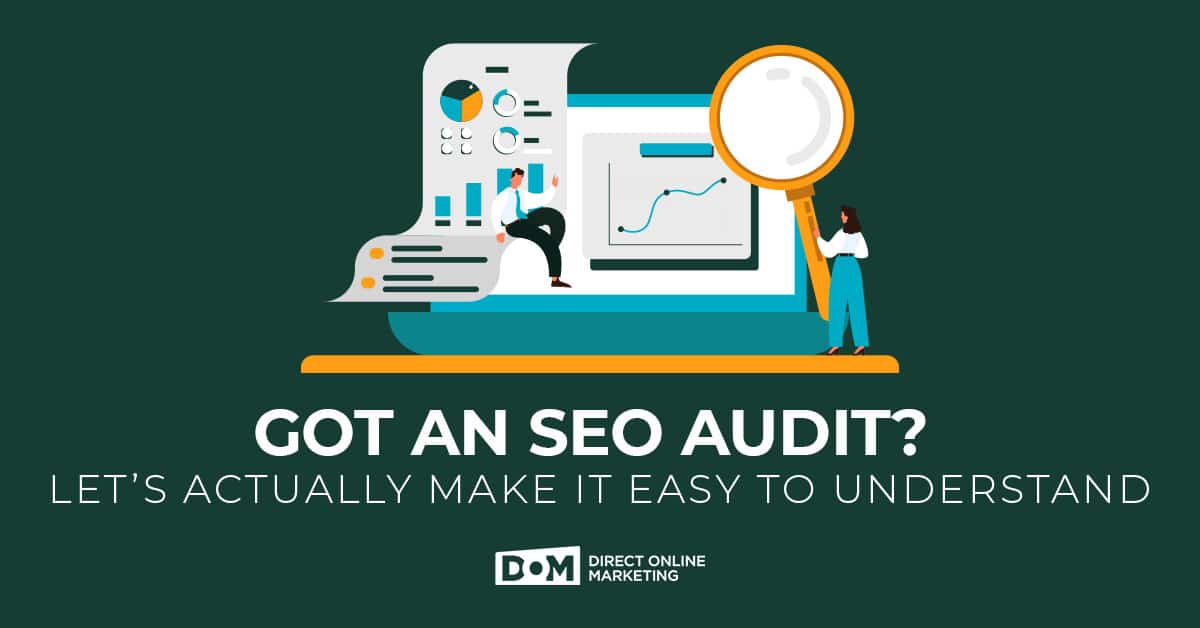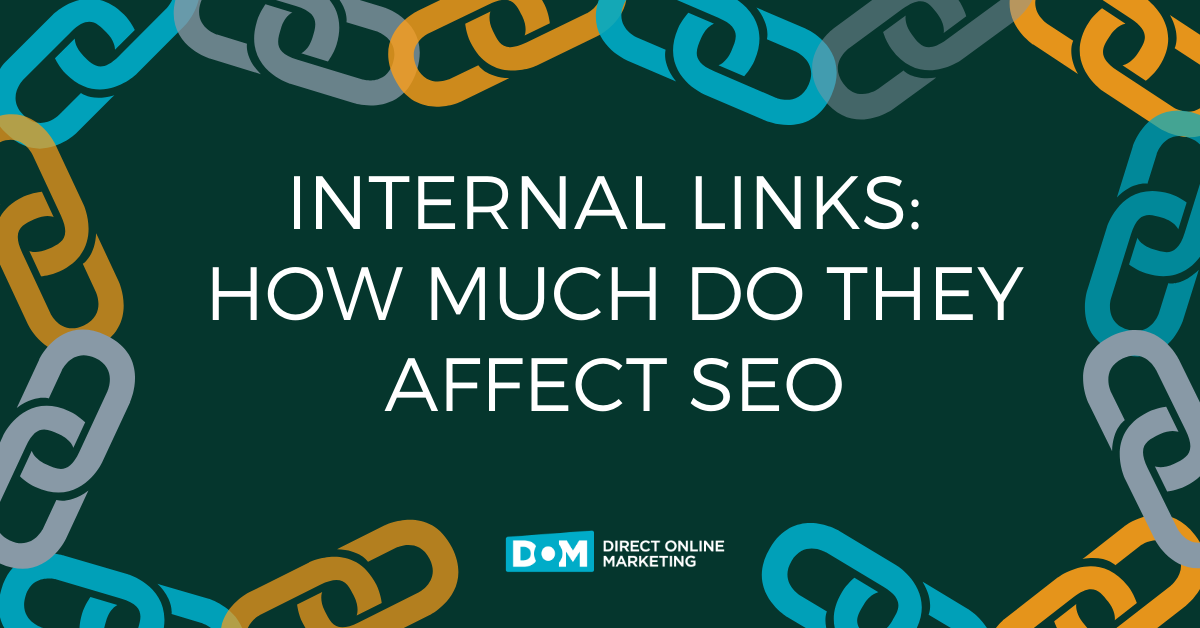
SEO audits are important to any business that operates in an online or partially online manner. So, basically, any modern business.
You probably already have the gist of what SEO audits accomplish, but here’s a brief summary just in case:
- Provide a list of things you need to do in order to improve your organic search performance
- Identify competitor SEO strengths and weaknesses
- Uncover content opportunities
- Bring to light site speed issues
While the premise is simple, it’s not always easy to understand the results and action items you’re handed back after one is completed. Honestly, it can sometimes feel like SEO people are speaking a totally different language.
What we’re going to do in this article is try to demystify the SEO audit and turn those results into something you can understand.
First Things First… How Do You Do an SEO Audit?
Since an SEO audit’s function is to determine how well your site is doing in terms of search engine result pages (SERPS), it goes to follow that the things that are looked at are the common factors that affect those rankings.
In general, an audit will examine the following things to uncover your business’s strengths and weaknesses:
Discover Search Engine Traffic Patterns – One of the key factors to improving your SEO is understanding what people are searching for currently that’s bringing them to your site. Analyzing traffic patterns can help you discover why people are visiting your site, where they’re coming from, and what they’re doing when they get there.
Having a deeper insight into traffic patterns allows you to get a fuller understanding of what’s working for you, why it’s working, and how you can expand your appeal and your customer base.
Analyze Keyword Performance – Keywords are an integral part of SEO. You want Google to associate your site with commonly searched relevant terms to a greater extent than your competitors.
Analyzing keyword performance will reveal just how well you’re doing that. For instance, if you’re a SaaS company specializing in individual productivity, you want to be ranking high for keywords like “productivity services,” “optimize productivity,” etc. Getting onto page one of search results for those keywords means that Google has decided that your site carries the most relevance for people who are searching for them.
Just as important as ranking highly for those keywords is the total number of keywords that you’re ranking for. You want to rank for everything you can that matches the intent (in this case, people looking to buy) and is related to your business.
Examine Site Speed Performance – Core web vitals are, well, a core part of understanding how your site is going to perform in search results. A slow loading site with content that shifts around the browser will turn away a huge portion of potential customers.
An SEO audit should include measuring these vitals and suggestions to improve them. Oh, and they should use a reputable tool to show you your site speed performance. Here at DOM, we prefer tools like Pingdom or Google PageSpeed Insights, but there are others that can equally get the job done (GTMetrix, YSlow, Uptrends, etc.).
Discover On-Site SEO Issues – SEO starts on your site, and that means all of your pages and content should be working together to boost your rankings. An audit will uncover problems that are holding you back.
A random example might be if your sitemap can’t be identified. When Google is unable to find your sitemap, the discoverability of your new content suffers and you become less visible. A good audit will highlight those issues and provide a path to fixing them.
Analyze Media and Content – Content can mean case studies, blogs, videos, podcasts, infographics, on-site webinars, etc. Your media and content serves purposes for driving and holding potential customer interest. Similarly, each piece of content should also be helping your SEO efforts move forward.
For instance, blogs should be optimized for specifically targeted keywords. Infographics should have alt tags included and be compressed without compromising quality. Podcasts and videos should be embedded on YouTube or Vimeo with image thumbnails.
A content analysis will determine where your content currently stands, what it’s doing right, and what it could be doing better. It may also uncover opportunities for new kinds of content.
Audit Backlink Volume – Backlinks occur when an outside website has a link that goes back to your website. They’re integral for building site authority in the eyes of a search engine.
Your SEO audit should the number of sites linking back to yours, a snapshot of how that number compares to others in your market, and an overview of the quality of those backlinks.
What Should Be Included in an SEO Audit?
Okay, so we just went over the components of how an SEO audit should be done, but what should you expect to get back from it? What are the deliverables from all of this?
Well, what you’re going to get back is essentially broken up into two components:
Site Health Feedback – A comprehensive SEO audit is going to provide you with answers to three questions.
- What are the major errors holding back your site’s success?
- What are issues that you need to take up with your developers?
- What are some things that may not be major issues, but are still a good idea to fix after the major errors?
This feedback should essentially work like a to-do list that will provide you with the steps to get your website healthy and prepared to do more to make your business visible to potential customers.
Comparisons Against Your Competition – Your SEO audit should provide you with an analysis of what your competitors are doing in all areas of SEO. This includes things like the keywords they’re ranking for, the nature of their site content, and any visible trends in their sites’ SEO performance.
Understanding what your competition is doing, the stuff that’s working at least, will give you insights into what your business can do to surpass them.
How Long Do SEO Audits Take to be Done Right? How Much Should They Cost?
The answer to both of those questions is “It depends.”
As far as how long it takes, that depends on how deep of an audit it is, how big your site is, how saturated the market is with competitors, etc. There are a lot of factors that are going to affect the timeline.
Remember, not only does all of your SEO data need to be uncovered, but it also needs to be analyzed and interpreted into actionable items that can then be actually used for something.
We can confidently say, however, that it’s going to take longer than one business day.
As to how much it costs, that depends on who’s doing it for you. For instance, if you’d like us to do an initial no-commitment audit for your business, there’s actually no cost at all.
Contact us and get a no obligation SEO audit that will uncover what’s holding you back from reaching page 1.
If you are paying for an SEO audit, make sure you get clarity from the agency providing it on what they will be providing you – and customize it to your business goals. For instance, if your business sells products or services globally, an analysis of your local SEO efforts probably doesn’t make sense.
Make sure the audit focuses on what matters most to your goals and applications for SEO as opposed to the cookie-cutter “SEO best practices.”
Why Is an SEO Audit Important?
It’s simple, really. SEO audits are important because they reveal what needs to be done to make SEO an effective marketing channel for reaching your business goals.
SEO is important because it makes your business more visible to customers and prospects who are searching for products or services that your business provides.
They help you understand what your team is doing well on your site. That lets you know what’s working and from there you can continue to promote those efforts.
They also help you understand what’s holding your site back. Then you’ll know what you need to fix and improve to make your SEO perform better.
SEO audits also help you understand what your competition is doing. What are they leveraging to drive sales and/or leads that you’re not? Once you find out, you can start leveraging those things too.
Having an outside agency examine your SEO and how your site is performing is also a great way to inspire creativity. An outsider’s data-driven perspective on what you’re doing right and what could be better can be a major shot in the arm, as it were, to get the gears churning in the minds of your company’s problem solvers.
For more help on understanding SEO audits, and all the lingo that comes with them, check out our CMO’s Cheat Sheet.
The Rundown on SEO Audits
In conclusion, these are what we hope are your takeaways:
- SEO is important because it affects how visible your business is in Google search results.
- SEO audits are a deep dive into what’s working and what’s not working for your site’s SEO.
- SEO audits also analyze your competition to find out what’s working for them.
- An SEO audit will provide you with a list of actionable tasks that will help your SEO capabilities.
At DOM, our SEO audits are top-notch and capable of uncovering the data that will get you to page one. We’ll also present it to you in a way that you can clearly understand, and we’ll tell you how you can take action moving forward.
Best of all, your initial audit is free.


